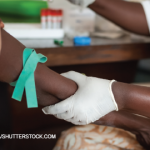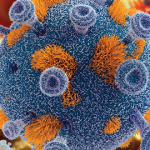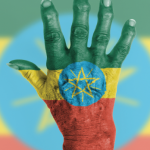They also said RA can cause false-positive HIV serology.
Pediatric Rheumatology
Research in pediatrics also remains scant, but studies in Kenya and Nigeria report a prevalence of 1–2% of pediatric admissions for rheumatic diseases, said Marie Doualla Bija, MD, professor of rheumatology at the University of Yaoundé in Cameroon.
A study of 78 juvenile idiopathic arthritis patients in Zambia found 14% of them were reported as systemic onset, with a mean age at presentation of eight years, and 35% as polyarticular rheumatoid factor negative, with a mean age at presentation of 13 years.4
No data are available on the prevalence of pediatric systemic lupus erythematosus (SLE), but case studies have found constitutional symptoms and nephritis are the top clinical features, Dr. Doualla said.
Community-based information on childhood musculoskeletal disease, more rheumatology specialists and a greater workforce in rheumatology—and healthcare in general—are needed to provide better care, she said.
Education & Training
Efforts are underway to improve training and provide patient support, said Dfiza Dey, MBChB, MSc, consultant physician and rheumatologist at the University of Ghana in Accra. In a survey, healthcare professionals in Africa said the biggest barriers to improving care of musculoskeletal disease in Africa are the limited availability of specialist care and a lack of patient awareness.5
The rheumatologist shortage is stunning—41 rheumatologists work in Nigeria, which has a population of 200 million people, and two in Ghana, which has a population of 29 million people.
Rheumatologists from North America, the United Kingdom (U.K.), Europe and Africa received grants from the International League of Associations for Rheumatology (ILAR) to develop rheumatology services in Zambia and Kenya. And in the UWEZO project, Kenyan, U.K. and Swedish rheumatologists collaborated to train a team of physicians who provided basic skills to more than 500 health providers at 11 sites across Kenya.
But there are still “huge belts with no ongoing training or rheumatologists,” Dr. Dey said. In Ghana, she leads the Rheumatology Initiative, a patient support network started five years ago that prioritizes doctor and nurse education. She said adherence to medication is an especially big problem given poor socioeconomic conditions and that health education—including information tailored to the illiterate—remains vital.
“It’s through our combined efforts,” Dr. Dey said, “that we [will] realize these improved outcomes for African rheumatology patients.”
Thomas R. Collins is a freelance writer living in South Florida.
References
- Tarr G, Makda M, Musenge E, et al. Effect of human immunodeficiency virus infection on disease activity in rheumatoid arthritis: A retrospective study in South Africans. J Rheumatol. 2014 Aug;41(8):1645–1649.
- du Toit R, Whitelaw D, Taljaard JJ, et al. Lack of specificity of anticyclic citrullinated peptide antibodies in advanced human immunodeficiency virus infection. J Rheumatol. 2011 Jun;38(6):1055–1060.
- Cunha BM, Mota LM, Pileggi GS, et al. HIV/AIDS and rheumatoid arthritis. Autoimmun Rev. 2015 May;14(5):396–400.
- Chipeta J, Njobvu P, Wa-Somwe S, et al. Clinical patterns of juvenile idiopathic arthritis in Zambia. Pediatr Rheumatol Online J. 2013 Sep 14;11(1):33.
- Etomi O, Fink DL, Olaosebikan H, et al. Building a rheumatology team for Africa: Enhancing the roles of patients and non-specialists. Rheumatology (Oxford). 2018 May 1;57(5):e48–e49.


